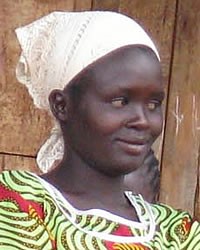Kalenjin, Sabaot in Kenya

Photo Source:
Gary Glahn
|
Send Joshua Project a map of this people group.
|
| People Name: | Kalenjin, Sabaot |
| Country: | Kenya |
| 10/40 Window: | No |
| Population: | 324,000 |
| World Population: | 324,000 |
| Primary Language: | Sabaot |
| Primary Religion: | Christianity |
| Christian Adherents: | 90.00 % |
| Evangelicals: | 4.00 % |
| Scripture: | Complete Bible |
| Ministry Resources: | Yes |
| Jesus Film: | Yes |
| Audio Recordings: | Yes |
| People Cluster: | Nilotic |
| Affinity Bloc: | Sub-Saharan Peoples |
| Progress Level: |
|
Introduction / History
The Sabaot people live on or near the slopes of Mount Elgon. The hills of their homeland gradually rise from an elevation of 5,000 to 14,000 feet. Numerous mountain streams and spectacular waterfalls crisscross the area. Mount Elgon is an extinct volcano about fifty (50) miles in diameter. The Kenya-Uganda border goes straight through the mountain-top, cutting the Sabaot homeland into two halves.
What Are Their Lives Like?
In recent years, the Sabaot people have been forced to drastically change their lifestyle from cattle herding to planting maize (corn) and vegetables due to land scarcity. Economically, this change was good for the people, because the frequent hunger spells have all but stopped. Socially, it has been a hard and traumatic change as the former leaders in the society lost their power, old values were eroded, and drinking homemade beer grew to a destructive level.
The Sabaot people are proud of their cultural heritage. The elders sing with sadness in their voices, using their six-stringed lyre, about the lost glory of their free life as warriors and cattle people. They remember their best cows by name.
The Sabaot do not adapt to change quickly, but most of the children now go to school. That is why the majority of adults have never learned to read. The young, educated people have become the new elite.
What Are Their Beliefs?
Traditionally, the Sabaot have always believed in a Creator God. He was good and provided sunshine, rain, and life, but he was far away. It was the belief in the ancestral spirits that controlled the daily life of the people and brought them fortune or, more often, misfortune. If sickness struck, sacrifices had to be made to appease the angry ancestor who sent the sickness to avenge some wrongdoing against him.
When the first missionaries settled among the Sabaot in as late as 1981, they were asked, "Why have the missionaries forgotten us?". Still, they are predominantly Christian today, though Evangelicals are a small minority.
What Are Their Needs?
Sabaots need the spiritual hunger it takes to sell everything for Christ, the Pearl of Great Price.
Prayer Points
Pray for Sabaots to understand that the Lord can and will provide for all their spiritual and material needs when they put their trust in him.
Pray for Sabaot Kalenjin husbands to love and respect their wives and always remain faithful to them.
Pray for revival fire to bless Sabaot Kalenjin churches and families abundantly.
Pray that soon Sabaot Kalenjin churches will be preparing and sending workers to the least-reached parts of Africa.